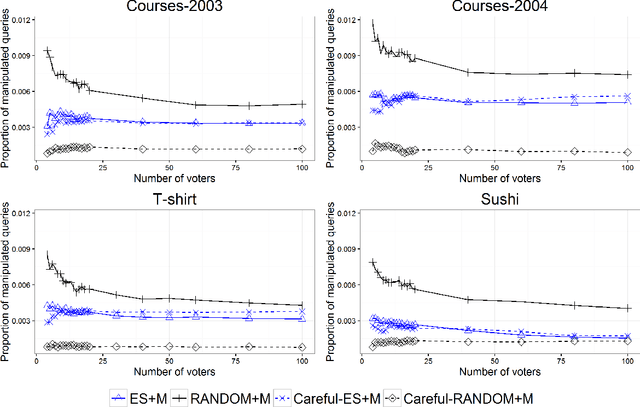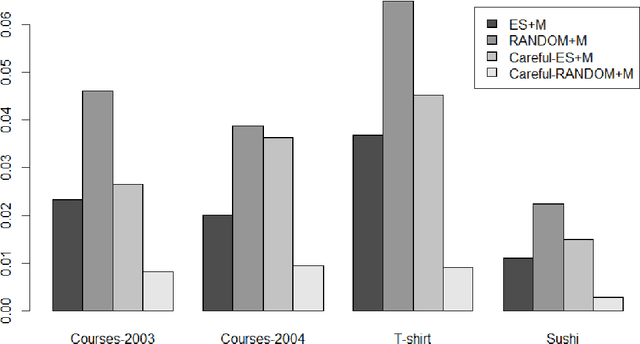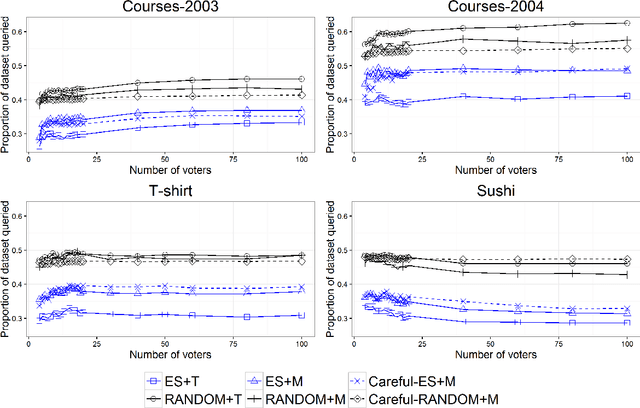Lie on the Fly: Strategic Voting in an Iterative Preference Elicitation Process
Paper and Code
May 13, 2019



A voting center is in charge of collecting and aggregating voter preferences. In an iterative process, the center sends comparison queries to voters, requesting them to submit their preference between two items. Voters might discuss the candidates among themselves, figuring out during the elicitation process which candidates stand a chance of winning and which do not. Consequently, strategic voters might attempt to manipulate by deviating from their true preferences and instead submit a different response in order to attempt to maximize their profit. We provide a practical algorithm for strategic voters which computes the best manipulative vote and maximizes the voter's selfish outcome when such a vote exists. We also provide a careful voting center which is aware of the possible manipulations and avoids manipulative queries when possible. In an empirical study on four real-world domains, we show that in practice manipulation occurs in a low percentage of settings and has a low impact on the final outcome. The careful voting center reduces manipulation even further, thus allowing for a non-distorted group decision process to take place. We thus provide a core technology study of a voting process that can be adopted in opinion or information aggregation systems and in crowdsourcing applications, e.g., peer grading in Massive Open Online Courses (MOOCs).
 Add to Chrome
Add to Chrome Add to Firefox
Add to Firefox Add to Edge
Add to Edge